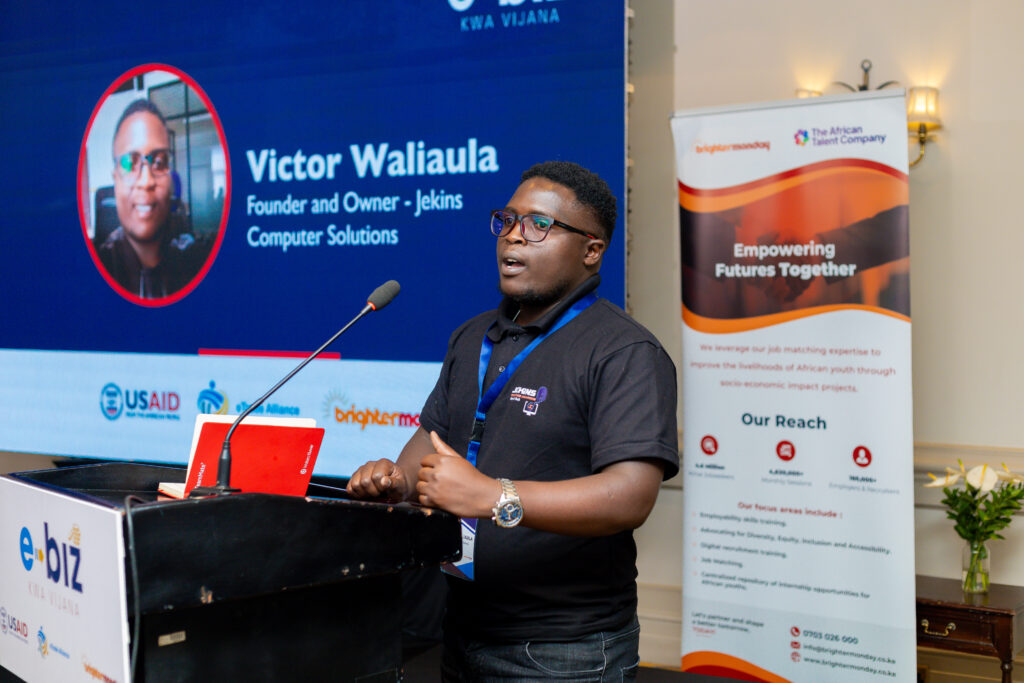- MSMEs and the e-commerce sector in Kenya are emerging as a formidable force driving economic growth.
- With over 7.4 million MSMEs contributing about 40 percent of the country’s GDP, their potential to boost the economy is huge.
- With internet penetration in Kenya currently above 74 percent, the country is well-positioned for e-commerce growth banking on an expanding middle class.
In a world where technology continuously reshapes the business scene, the relationship between Micro, Small, and Medium Enterprises (MSMEs) and the e-commerce sector in Kenya is emerging as a formidable force driving economic growth.
This dynamic was highlighted during a recent stakeholder forum reviewing the Kenya e-commerce strategy, launched in December 2023.
The strategy aims to foster innovation, inclusive participation, and economic growth through digital commerce for Kenyans, regardless of location, age, gender, or abilities.
With over 7.4 million MSMEs contributing about 40 percent of the country’s GDP, their potential to boost the economy is huge.
Empowering entrepreneurs through e-commerce
One of the key initiatives supporting this vision is BrighterMonday Kenya’s “e-Biz Kwa Vijana” program, launched in May 2023 that seeks to skill 1,000 MSMEs in e-commerce and digital marketing skills.
One year later, the plan concluded having imparted valuable skills to over 2,000 beneficiaries and successfully onboarded 632 MSMEs onto online trading platforms.
“Through the training in digital strategies, I can now develop my own online advertisements and product promotions on social media. Before I joined the e-Biz Kwa Vijana Program, I did everything through direct selling and personal interactions,” noted Victor Waliaula, the proprietor of Jekins Computer Solutions in Nairobi.
“Now I am well-equipped to position my brand, products, and services online to reach millions of potential customers all over the country.”
Waliaula, a graduate in ICT, reported a 30 percent increase in revenues since participating in the program. He is keen to harness further training in business strategy and marketing to grow his venture.
Inclusive growth and opportunities
The e-Biz Kwa Vijana program, funded by USAID through the e-Trade Alliance, also focused on women entrepreneurs and people with disabilities.
According to Chris Otundo, CEO of BrighterMonday Kenya, the program represents the firm’s commitment to bridging the talent gap in Africa while unlocking opportunities for the economic empowerment of young entrepreneurs and MSMEs.
“The success of this program indicates the strong entrepreneurial spirit in young people in Kenya today. We recognize and acknowledge the potential of E-Commerce to help revolutionize the local entrepreneurial landscape by equipping young people like Victor and Lilian with the necessary knowledge and tools to expand their market opportunities”, said Otundo.
Lilian Wairimu, Co-Director of Jegos Enterprises and another beneficiary of the program, witnessed a 50 percent rise in sales revenues over the past year, thanks to her growing online presence on social media platforms Instagram, TikTok, and Facebook.
“Previously, I would just sit in my shop waiting for walk-in customers and relying on corporate or government tenders for opportunities which I admit are very hard to come by because of their many requirements such as huge working capital reserves which in some cases were out of our reach being an MSME”, she said.
Government support and future prospects
Michael Maundu, acting secretary for Trade in the State Department for Trade, highlighted the steady growth of e-commerce in Kenya. The East African country is now established as a leader in digital trade within Africa and globally, with combined sector revenues projected to hit $2.9 trillion in 2023.
“A large share of this revenue is attributable to MSMEs, and youth-run enterprises, that provide jobs and sustainable livelihoods while also nurturing digital talents in the country,” said Maundu.
Following the e-Biz Kwa Vijana program, 95 percent of MSMEs reported gaining new ideas for their online businesses, with 86 percent achieving their first-ever online sale after the training.
Additionally, 28 percent of participants reported an increase in the number of employees to support increased online business activities, while 95 percent expressed a willingness to set aside a monthly e-commerce expense after determining the return on investment.
With internet penetration in Kenya currently above 74 percent, the country is well-positioned for e-commerce growth banking on an expanding middle class, which comprises a huge share of e-commerce customers, relying on the convenience and speed offered by online shopping, allowing them to buy goods and services on the click of a button.
Market access, widely enabled through connectivity, allows budding entrepreneurs such as Victor and Lilian to grow their customer base and enter new markets. E-commerce opens a world of limitless potential for growth and expansion, both locally and globally.
Read also: Rising Inflation biggest impact to MSMEs in Africa in 2023











